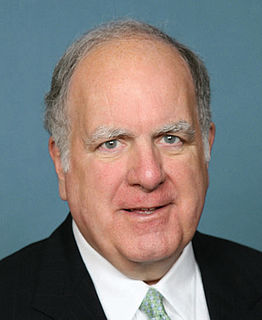A Quote by Jay Leno
Obama called on Americans to have more grandchildren. Probably so there's more of them to pay off our debt.
Related Quotes
Back in 2008, candidate Obama called a $10 trillion national debt 'unpatriotic' - serious talk from what looked to be a serious reformer. Yet by his own decisions, President Obama has added more debt than any other president before him, and more than all the troubled governments of Europe combined. One president, one term, $5 trillion in new debt.
There are two definitions of deflation. Most people think of it simply as prices going down. But debt deflation is what happens when people have to spend more and more of their income to carry the debts that they've run up - to pay their mortgage debt, to pay the credit card debt, to pay student loans.
As more and more Americans own shares of stock, more and more Americans understand that taxing businesses is taxing them. Regulating businesses is taxing them. They ought to be thinking long-term about their ownership, not just their income, and that they should pay taxes on capital, as well as taxes on labor.
The U.S. has a law on the books called the debt limit, but the name is misleading. The debt limit started in 1917 for the purpose of facilitating more national debt, not reducing it. It still serves that purpose. It's unconnected to spending, hurts our credit rating and has been an abject failure at limiting debt.
People tend to think that paying a debt is like going out and buying a car, buying more food or buying more clothes. But it really isn't. When you pay a debt to the bank, the banks use this money to lend out to somebody else or to yourself. The interest charges to carry this debt go up and up as debt grows.
If you ask the question of Americans, should we pay our bills? One hundred percent would say yes. There's a significant misunderstanding on the debt ceiling. People think it's authorizing new spending. The debt ceiling doesn't authorize new spending; it allows us to pay obligations already incurred.
































